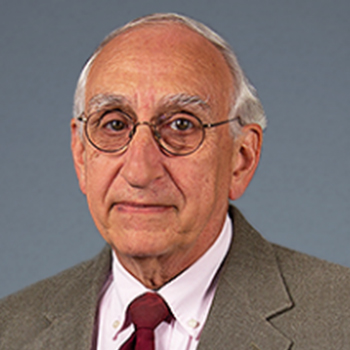Vascular Cell Biology
Focusing on the pathogenesis of diabetes-induced microvascular and cardiovascular pathologies
How We're Advancing Care
The Vascular Cell Biology Section focuses on the understanding of pathogenesis of diabetes-induced microvascular and cardiovascular pathologies that are important for both type 1 and type 2 diabetes.
The investigators study the mechanism by which high glucose levels are altering signaling and function of cultured vascular cells in the various organs, such as the retina, heart, arteries, kidneys, bone, and Central Nervous System (CNS) dysfunction. In addition, the associations between diabetes and cancer as well as cerebral vascular accidents and dementia are also characterized.
These vascular complications of diabetes are the major cause of mortality and morbidity in all diabetic patients. We use multiple approaches, including cultured vascular cells, rodent models of diabetes, and specialized cohort of type 1 and 2 diabetic patients. Our approaches include culturing vascular cells from various organs, such as the retina, arteries, capillaries, kidney, and tumors in order to study the effect of glucose and a variety of growth factors such as insulin, VEGF, endothelin, CTGF, angiotensin, and others.
In addition, we characterize special cohorts of patients such as those with extreme duration of type 1 diabetes (The Medalist Study) in order to discover factors which are expressed in various organs such as the retina, heart, kidneys and aorta which are protecting many of these patients from developing micro and macro vascular complications of diabetes in the presence of hyperglycemia and long duration of diabetes.
These efforts span the full spectrum of bench-to-bedside and use all aspects of technology, including clinical studies, omics, and, molecular tools involving rodents, small molecule inhibitors, and activators.
Recent Accomplishments
- Khamaisi M, Katagiri S, Keenan H, Park K, Maeda Y, Li Q, Qi W, Thomou T, Eschuk D, Tellechea A, Veves A, Huang C, Orgill DP, Wagers A, King GL. PKCδ inhibition normalizes the wound-healing capacity of diabetic human fibroblasts. J Clin Invest. 2016 Mar 1;126(3):837-53. doi: 10.1172/JCI82788 PMCID: PMC4767341
- Aiello LP, Sun W, Das A, Gangaputra S, Kiss S, Klein R, Cleary PA, Lachin JM, Nathan DM and The Diabetes Control and Complications Trial (DCCT)/Epidemiology of Diabetes Interventions and Complications (EDIC) Research Group. Intensive Therapy and Ocular Surgery in Type 1 Diabetes. New Engl. J. Med. 2015;372:1722-1733. PMCID: PMC4465212
- Kita T, Clermont AC, Murugesan N, Zhou Q, Fujisawa K, Ishibashi T, Aiello LP, Feener EP. Plasma Kallikrein-Kinin System as a VEGF-Independent Mediator of Diabetic Macular Edema. Diabetes. 2015 Oct;64(10):3588-99. doi: 10.2337/db15-0317. PMCID: PMC4587649
- Li Q, Park K, Li C, Rask-Madsen C, Mima A, Qi W, Mizutani K, Huang P, King GL. Induction of Vascular Insulin Resistance, Endothelin-1 Expression and Acceleration of Atherosclerosis by the Overexpression of Protein Kinase C β Isoform in the Endothelium. Circ Res. 2013 Aug 2;113(4):418-27. PMCID: PMC3893704
Section Members












Support Our Research
Our researchers are constantly pushing science beyond what is possible today in a relentless pursuit of a cure that will transform the lives of millions. Help us help the ones you love.
